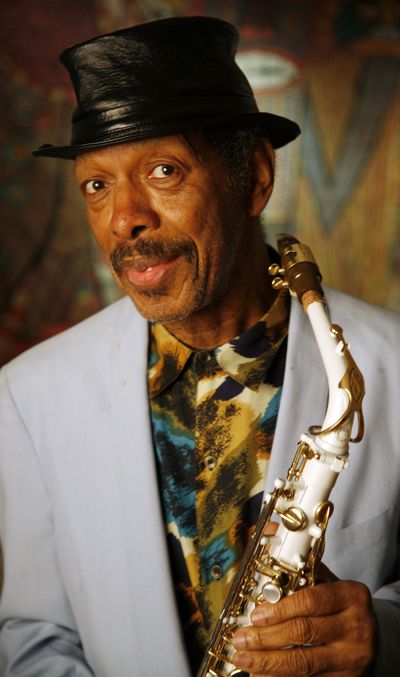Jazz legend Coleman, 85, dies

NEW YORK – Jazz legend Ornette Coleman, the visionary saxophonist and composer who pioneered “free jazz” and won a Pulitzer Prize in 2007, has died.
Publicist Ken Weinstein said Coleman died on Thursday at 1 a.m. in Manhattan. He was 85.
The Texas-born Coleman was only the second jazz artist to win the Pulitzer in music when he was honored for his 2006 album “Sound Grammar.”
Coleman is regarded as one of the greatest innovators in jazz history along with Louis Armstrong and Charlie Parker. In the late 1950s, he originated “free jazz,” challenging the bebop establishment by abandoning the conventional song form and liberating musicians to freely improvise off of the melody rather than the underlying chord changes. Coleman broke down the barrier between leader and sidemen, giving his band members freedom to solo, interact and develop their ideas.
Though largely self-taught, Coleman would create his own “harmolodic” concept of music, which also became a life philosophy. The music derived from a uniquely free interaction between the musicians, without being tethered to rigid metric or harmonic structure.
“I want everyone to have an equal relationship to the results,” Coleman told the AP in a 2007 interview. “I don’t tell them what or how to play. … Sometimes the drum is leading, sometimes the bass is leading. … I don’t think I’m the leader, I’m just paying the bills.”
In his later years, the jazz revolutionary became a respected elder statesman with the accompanying honors, including membership in the elite American Academy of Arts and Letters, a National Endowment for the Arts Jazz Master award, and a Grammy lifetime achievement award, even though none of his recordings ever won a Grammy.
But early in his career, Coleman’s unconventional playing led him to be rejected by both the public and his fellow musicians – who would walk off the stage when he showed up at jam sessions. Coleman was told he played out-of-tune and didn’t know the basics of jazz improvisation.
Coleman recorded his first album “Something Else” in 1958. The new sound caught the attention of the Modern Jazz Quartet’s pianist John Lewis, who called Coleman “the only really new thing in jazz since Charlie Parker in the mid-’40s.”
Coleman credits his mother with giving him the strength to overcome the adversity he faced growing up in a largely segregated Fort Worth, Texas, where he was born on March 9, 1930.
Coleman’s father died when he was 7, and his mother supported the family on her seamstress earnings. She bought him his first saxophone when he was 14 from money he earned shining shoes and he taught himself how to play.
In the early 1960s, Coleman largely left the scene for several years to teach himself to play trumpet and violin in an unorthodox style, giving himself a more colorful sound palette.
He stirred more controversy when he tapped his 10-year-old son Denardo to be the drummer in his quartet in 1966. Denardo would go on to play regularly in his father’s bands.
Coleman said the title of his Pulitzer-winning album “Sound Grammar” referred to his lifelong search to decode the universal musical language that crosses all borders.
“To me sound is eternal … and there are still some notes that haven’t been heard. I don’t know where to find them, but I know they are there,” Coleman said in the AP interview.